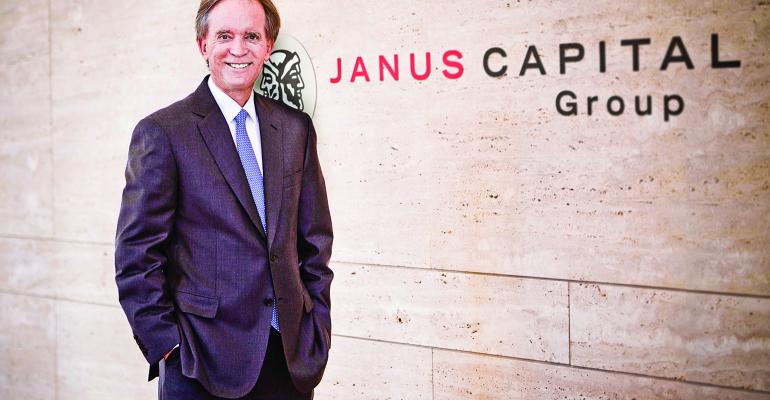(Bloomberg) -- For investors seeking an alternative to stocks and bonds at the moment, Bill Gross has a recommendation: merger arbitrage.
The co-founder and former chief investment officer of Pacific Investment Management Co. has been growing increasingly vocal in recommending the strategy, which involves betting on the outcome of corporate takeovers.
“My use of arbs is relatively recent due to the high valuation of stocks in general,” he said this week in an emailed response to questions. “They provide a higher expected return with less downside if researched properly.”
It’s a corner of the investment universe that’s seen tremendous volatility this year as US regulators have taken an aggressive stance on trust-busting. The strategy’s performance has picked up over the past few months, after the Federal Trade Commission suffered several setbacks in challenges to deals in industries such as health care and technology.
Read more: Merger-Arb Bet at Amgen-Horizon Deal’s Lowest Hour Spurs 25% Win
In an outlook note published last week, the erstwhile Bond King said equity valuations are too high given the steep increase in borrowing costs. What’s more, he doesn’t expect the Federal Reserve will be able to cut interest rates significantly given still-elevated inflation.
“I’d pass on stocks and bonds in terms of future total returns,” he wrote in the note.
‘Best Bets’
Merger-arbitrage investments are attractive because their performance isn’t necessarily correlated with the economy or the stock market, Gross said in the email this week. The increased volatility in some of the transactions allows for higher potential returns, he added.
Gross sees “best bets” in several arbitrage situations involving high-profile mergers that still need regulatory approval. They include video game-maker Activision Blizzard Inc., which is in the final stretch of being acquired by Microsoft Corp. for $69 billion, and Michael Kors parent Capri Holdings Ltd., which agreed to sell to Coach owner Tapestry Inc. for $8.5 billion. Pfizer Inc.’s proposed $43 billion purchase of Seagen Inc. has recently looked promising as well, he said.
Merger-arb traders, often hedge funds, typically seek to profit from the spread between the target stock’s price and the takeover offer. In the case of Capri, its shares closed at $51.15 on Tuesday, roughly 10% below the $57 cash offer. That gap in part reflects concerns about regulatory scrutiny.
Gross has voiced optimism about the deal’s outcome, viewing it as “a relatively safe industry,” unlike high-tech combinations that typically get tougher antitrust reviews. As he sees it, Capri is the best example of a sizable discount on a deal that may take six to nine months to close, generating a 14% annualized return, he said in his email this week.
“Anti-competitive eras are actually more attractive because they widen arb spreads for even the most logical and non-monopolistic mergers,” he said in the email.
To be sure, arbitrage strategies carry plenty of risk. While they offer lucrative returns when deals proceed, any hiccups can generate hefty losses.
Earlier this year, Gross touted an opportunity in AMC Entertainment Holdings Inc.’s proposal to convert preferred shares into common stock. The transaction was eventually completed, but the difference between gains and losses came down to timing, in part because legal twists.
For Gross, the trade “worked out brilliantly,” he said in the email.
Read more: Arb Traders Handed 150% Gains or 260% Losses on AMC-APE Wager
In the case of Activision, Gross said the deal became attractive once the FTC lost its challenge and it passed review in Europe, placing pressure on the UK to reverse its opposition.
If UK approval comes through and the deal closes — steps that are expected within days — the stock is set to move toward its $95 offer price, from Tuesday’s close of $94.34.

